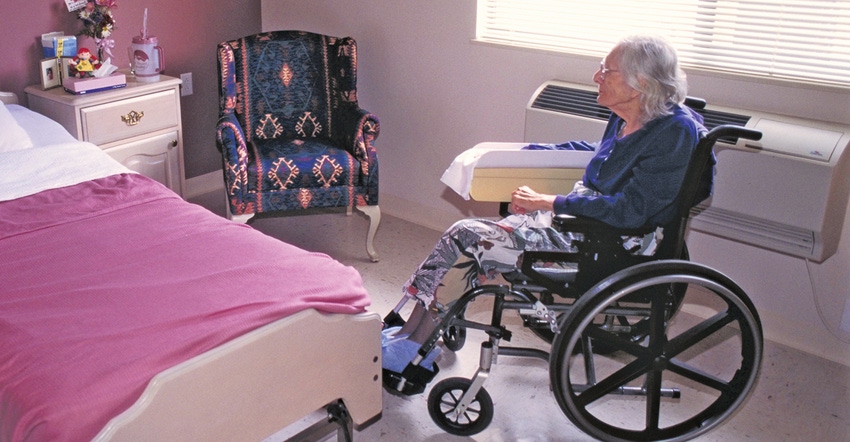December 16, 2016

The topic of estate recovery came up in various articles in The Farmer last year.
In April, we discussed how individuals over the age of 55 who enrolled in medical assistance (MA) through MNSure had inadvertently subjected their estates to recovery by the state of Minnesota. Then in December, we highlighted legislative changes that affected the scope of recovery as was previously discussed in April. Amid the changes in this area of law, with this column I’ll discuss estate recovery in greater detail and seek to clarify who is subject to it and when.
What is estate recovery?
Minnesota’s policy is that, in accordance with state and federal law, individuals and couples, either or both of whom participate in the MA program, use their own assets, either during their lifetime or after their death, to pay their share of the cost of their care. Estate recovery is the process through which the state attempts to recoup costs paid for MA from the estate of a deceased individual (if single) or the estate of a surviving spouse (if married).
Estate recovery has been mandated by federal law since 1993. States are required to recover costs paid for its program enrollees. Each state must seek recovery as minimally required. However, states have discretion over the scope of assets that are subject to recovery, and many states — including Minnesota — have expanded recovery to reach additional assets.
Who is subject to estate recovery?
Whether you are subject to estate recovery depends on the type of services received, the date on which you received them and the age at which you received them. Estate recovery applies if: 1) You or your spouse received MA at any age while residing in a medical institution for six months or longer, and it was reasonably expected you could not return home; 2) You or your spouse received any MA services after attaining age 55 and prior to Jan. 1, 2014; and 3) You or your spouse received MA consisting of nursing facility services, home- and community-based services, or related hospital and prescription drug benefits after attaining age 55 and after Jan. 1, 2014.
Estate recovery does not apply to those individuals who are under 55 and who do not permanently reside in a medical institution; or to those who are over 55 and who received services other than nursing facility services, home- and community-based services, or related hospital and prescription drug benefits after Jan. 1, 2014.
Let’s look at a few scenarios to better understand estate recovery.
Client Bill is a 75-year-old single Minnesota resident who enrolls in the MA program. Bill has no assets, but had in 2010 transferred his home to his son and retained a life estate interest in the property. He moves into a long-term care facility and dies two years later, after MA paid $144,000 for long-term care services. The house was valued at $325,000. At age 77, Bill’s interest at death would be 0.48742%, or $158,411. The state will seek reimbursement from Bill’s estate for the full $144,000 of benefits rendered.
Now assume instead Bill is married, and he and his wife, Mary, own the home. After Bill’s death, Mary continues to live in the home. Only upon her death will the state seek recovery.
Client Lisa is a 63-year-old Minnesota resident who enrolls in MA on May 1, 2014. She lives on her own, never receives nursing facility services or home- and community-based services, and passes away at age 72. MA paid $47,000 for Lisa’s medical care over nine years. Lisa dies with an estate worth $117,000. Lisa’s estate is not subject to recovery.
Now assume instead Lisa enrolled in the program in June of 2007 at the age of 56. Although Lisa did not receive nursing facility services, her estate is subject to recovery in the amount of benefits paid prior to Jan. 1, 2014.
What assets are subject to estate recovery?
States are required under federal law to pursue recovery from the individual’s or survivor’s probate estate. Minnesota’s estate recovery law expands beyond the required minimum to include life estate and joint tenancy interests owned at the time of death; interests in joint accounts, multiple-party accounts, POD (payable on death) accounts, investment accounts and securities owned in beneficiary form, to the extent those interests become part of the probate estate; and assets conveyed to a survivor heir or assign through survivorship, living trust or other arrangement. The reach of the recovery system is broad, including many, if not all, of the assets of those enrolled in MA to pay for long-term care services. The claim for reimbursement, however, will never exceed the amount of benefits rendered.
Estate recovery has become a topic of concern for more and more Minnesotans, as the costs of long-term care have dramatically increased, and fewer people are able to pay without the assistance of MA. Planning early and developing a strategy to pay for a long-term care stay is the best way to leverage the risk that your estate will be subject to recovery after you’re gone.
Gunsolus is an associate attorney with Miller Legal Strategic Planning Centers P.A, in Rochester. Contact her at [email protected].
About the Author(s)
You May Also Like




